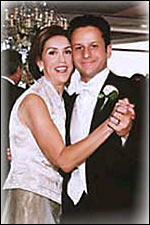Evaluating Courtship
Courtship is in many ways an excellent answer to the romantic malpractice of the culture. It's no mystery that the world has gone mad in the area of love. All rules are out; no holds are barred; all bets are off when it comes to dating as today's America does it. Marriage is take-it-or-leave-it, sex is anything but sacred, and divorce is as much an option as communication. To this world, courtship speaks. It puts forth a robust vision of marriage, seeing it, not dating, as the main thing. This is excellent. It necessitates the observance of traditional (biblical) gender roles in which the man leads and the woman follows. This is also excellent. It emphasizes accountability and the involvement of the church. Clearly, this is a good thing. Each of these strengths is hugely significant. These aren't simply three good things about courtship, these are beautiful shades of a prism. In much of this system, we see God's design for men and women and their mutual association.
I can validate these aspects of courtship because I have done it. I will go into no more detail than that, because this is not a diary-blog, but let me just say that I look back on my courtship experience as a positive one. It set my sights on marriage, where they should be for adult men and women. It forced me to be a man, to take risks and seek the heart of a woman. It gave me a structure in which there were boundaries and rules and accountability. All this was excellent. I am able to look back on my courtship and say that I was helped to think through marriage, that I got to know the person I courted, and that God was by His grace honored in our conduct. Praise God for raising up this system and the church who taught it to me and then called me to follow it.
So that's the rosy side. There are drawbacks to courtship, however. One in particular stands out. Courtship is often conducted in lieu of dating. In other words, it replaces dating. As such, it tends to cut out some of the "getting-to-know-you" time of dating. Usually, a man notices a woman, strives to be around in inconspicuous but helpful ways, and then asks her to court. Keep in mind that courting equals consideration of marriage for both parties. In this brief sketch I've given, you can probably see the potential unhelpfulness of this scenario. Oftentimes, women are not comfortable jumping into a serious relationship with someone they do not know very well, even someone they may like! I completely understand. It's a tremendous thing to ask somebody to consider marrying you. It ought to be done with great care and with substantial knowledge of the person with whom you are involved. You can't simply rush something like this.
Here, then, is the achilles heel of courtship. In its attempt to exalt marriage, it diminishes unpressured interaction. Everything is heightened. The woman is oftentimes afraid, particularly if she isn't clamoring to get married (read: older). In churches where this takes place, courtship may actually have something of a reverse effect on marriage if it's not handled carefully. This may happen because women know that courtship is king at their church, that courtship means serious consideration of marriage, and that they are thus not going to court unless they are quite certain of their interest in a man. This disturbing and harmful trend does little to damage the romantic aspirations of the church's "beautiful people," or whatever you want to call them, but it does much to hinder those of the men and women who cannot snap their fingers and make a relationship appear. It is these people who stand to suffer the most, because they will not take a risk. They don't get alot of attention, and so there's not much opportunity to get to know the opposite sex in a meaningful way (remember, dating is out), and so they simply sit by their lonesome day after day, month after month, year after year, praying for something to happen. Meanwhile, they're the victim, albeit a willing participant, in a system that is theoretically excellent but practically flawed at a crucial juncture: getting to know people.









